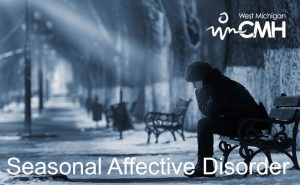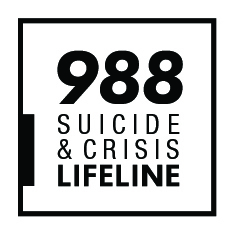Mental Health Matters: Coping with Seasonal Affective Disorder
 The first day of winter is the shortest day of the year. This year, it falls on December 21. While we are still a few weeks away from winter, we are only seeing about nine hours of daylight each day. The lack of sunshine can impact your mood and overall mental health through a condition called Seasonal Affective Disorder, or SAD.
The first day of winter is the shortest day of the year. This year, it falls on December 21. While we are still a few weeks away from winter, we are only seeing about nine hours of daylight each day. The lack of sunshine can impact your mood and overall mental health through a condition called Seasonal Affective Disorder, or SAD.
Also known as the Winter Blues, SAD is experienced by millions of people with symptoms often starting in fall and continuing into the winter months.
Keeli Sholtey, a social worker from West Michigan Community Mental Health, says some of the symptoms of SAD include felling depressed, losing interest in activities, having low energy, and changes with sleep patterns and eating.
“Seasonal affective disorder can be more mild than clinical depression,” Sholtey said. “So
we might not even realize we are feeling depressed. You might just feel like you’re in a funk for a little while and stop doing things that you previously enjoyed or engaged in, like hanging out with friends and family, going to the gym, or answering texts/calls.”
She says if you notice people in your life aren’t enjoying the things they used to, aren’t answering their phones or returning texts, are isolating themselves, or just don’t seem like themselves and are feeling down, you should check in on them.
“Just check in. Ask them how they are doing. If you’re close to that person, you may want to say, ‘hey, you don’t seem like yourself. Is everything alright?’”
Sholtey cautions that some people may not want to talk about it, but just having that validation and checking in on someone can make them feel a little better. “It is nice to know people care.”
Sholtey said with SAD, many people have more control over it than clinical depression and can combat it with behavior changes. Things like exercising, meditation, and finding positive distractions can positively impact a person’s mood.
“Just take care of yourself,” she said. “It can be something simple like going outside for a walk, taking a hot bath or calling a friend. You may also consider staying off social media to avoid negativity. Instead of using social media, watch a funny show to distract yourself from things that are negative.”
Light therapy is another technique that can help people with SAD. Light therapy involves sitting next to a bright light that mimics the sun’s natural light.
For those who need an additional boost, talk therapy or antidepressant medication may be beneficial.
The current COVID-19 pandemic is expected to increase seasonal affective disorder this year as stay-at-home orders will require people to spend even more time isolated and indoors.
Whether you need a one-time therapy session, ongoing treatment or just someone to talk to, West Michigan Community Mental Health is available to anyone in Mason, Lake and Oceana counties. Trained professionals are available 24 hours a day, 7 days a week by calling 1-800-992-2061.
Alan Neushwander is the Director of Public Relations and Customer Service at West Michigan Community Mental Health. He can be reached at (231) 843-5440 or email alann@wmcmhs.org
 or
or 